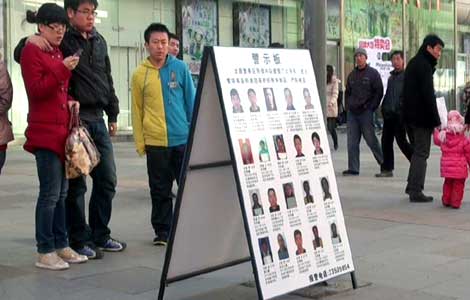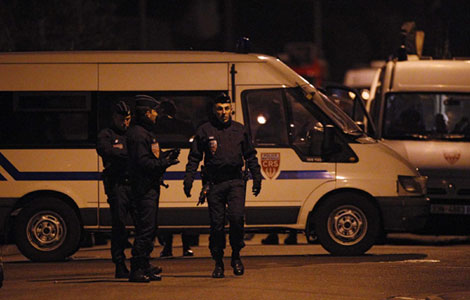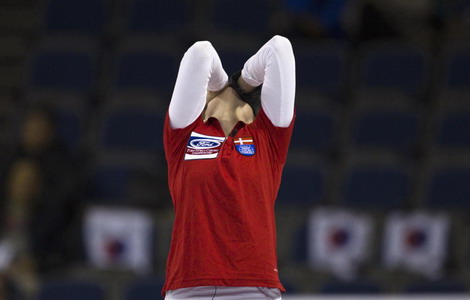 |
|
|
|
|||||||||
Mechanism offering litigants economic help in urgent need
A lawyer has sparked a legal dispute after asking for donations to help a convicted murderer facing the death sentence.
Li Jinxing, a criminal lawyer from Shandong province, wrote a letter on his blog in December promising to use the donations to help the condemned man, Li Lei, come to an agreement with his victim's family.
So far he has raised 50,000 yuan ($7,900).
Early in 2008, Li Lei fell in love with Liang Yanqin, from Nanyang in Henan province. But after taking more than 20,000 yuan as dowry from Li Lei's family, the woman married another man. In November that year, Li Lei stabbed her to death with a knife.
In last June, the Henan provincial high people's court approved the death penalty for Li, now awaiting review by the Supreme People's Court.
"I just want to rescue my poor client," the lawyer Li Jinxing said. "Anyway, the victim did something wrong, and the evidence in the case also needs further examination, as it's not enough to justify the death sentence."
Also, the victim's family says it is willing to come to an agreement with Li Lei, who has raised a daughter alone from a previous marriage, and will forgive him if he compensates them further, said the lawyer.
In China, the principle of the Criminal Law is to decrease the number of death sentences and pass such a sentence prudently, Li Jinxing added.
"Now that the victim's family has agreed to forgive the defendant, and if the case can be resolved in such a way, I think it's better for both families," the lawyer said.
"I think there will be a good result."
But his call for donations has caused some controversy.
Many followers of the lawyer's blog said the donations were a way of "exchanging money for life" and doubted where the money will go.
But Li Jinxing said it was a solution agreed by the victim's family and will reduce the damage suffered by both parties.
"I'll continue looking at how to deal with such cases through compensation, since some family and marriage-related cases can be better solved in this way, rather than giving criminals severe punishments," he said.
But Wang Xing, a Beijing-based lawyer involved in the case, did not agree that appeals for donations could be applied in other similar criminal cases.
"Li Lei's case is an individual one," Wang said. Donation appeals may cause victims or their families to unreasonably ask for more money, because there are no standard compensation rates set in law currently, he said.
Wang said the government should take over the lawyer's role and offer economic aid to both parties.
"After all, as a lawyer, it's unreasonable to call for a donation, because sometimes we're not objective. What we do is to help our clients."
Agreeing, Wang Minyuan, a criminal procedure law professor at the Chinese Academy of Social Sciences, said a compensation system was urgently needed in China to help poor victims and defendants' families.
Many developed countries have special mechanisms to provide financial help for victims of crime as well as people injured in accidents, and legal aid to defendants, according to the professor. "But such mechanisms are still absent in China."
"The lawyer's intention is good, but different cases need different solutions," Wang Minyuan added.
"There also needs to be a special organization to supervise the use of the money and ensure it is used for legal help, or the good deed could turn out to be a tragedy."
Wu Ying, iPad, Jeremy Lin, Valentine's Day, Real Name, Whitney Houston, Syria,Iranian issue, Sanyan tourism, Giving birth in Hong Kong, Cadmium spill, housing policy

|

|

|

|

|

|